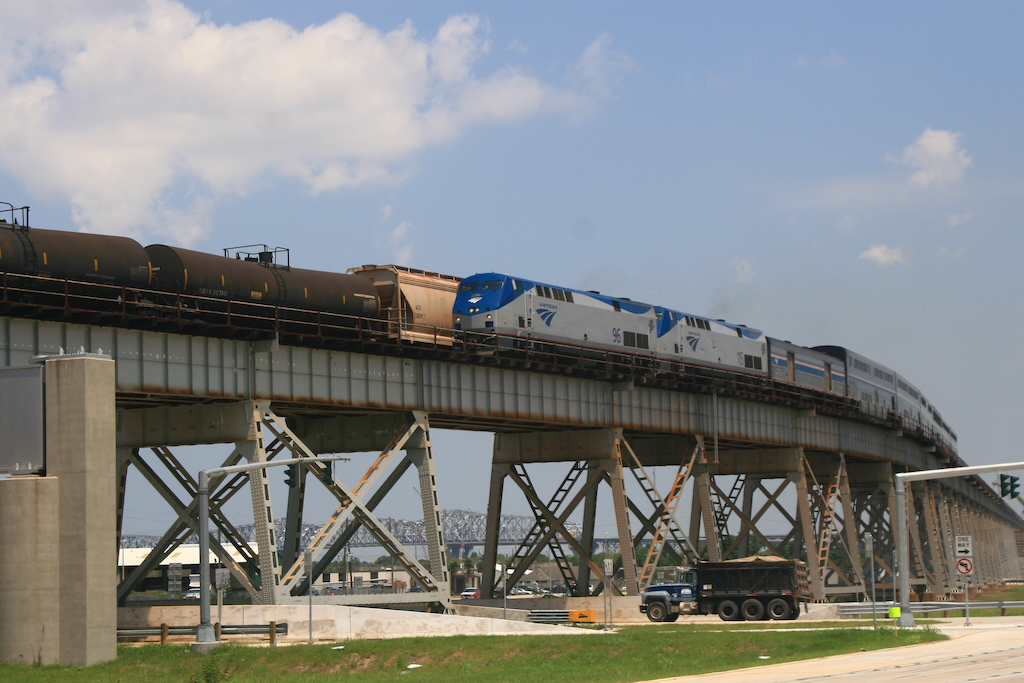
WASHINGTON – Union Pacific has resolved the broader service problems that prompted Amtrak’s complaint about the tardy performance of the Sunset Limited in the 12 months ending on Sept. 30, 2022, the freight railroad told federal regulators this week.
UP, which hosts the Sunset Limited for 1,770 miles of its 1,994-mile route between New Orleans and Los Angeles, says its service has improved to the point that it is now earning contractual on-time performance payments from Amtrak.
The Sunset Limited still does not meet the new federal customer on-time performance (OTP) standards, however, because Amtrak refuses to address necessary schedule changes, UP told the Surface Transportation Board in its response to Amtrak’s opening statement in the long-running dispute over the Sunset’s timekeeping.
“The record identifies two primary causes: Union Pacific’s overall service was unacceptably poor, and Sunset Limited schedules are not aligned with Customer OTP,” UP said in its filing.
Like the other three big U.S. Class I railroads, UP was caught short of crews as freight volume rebounded from pandemic lows in 2021.
“As a result of congestion and crew shortages, freight trains were often operating far behind schedule, so they were interacting with the Sunset Limited where such interactions normally would not occur, increasing the difficulties in planning efficient meets and overtakes Freight trains were also spending more time tied down in terminals and in other locations, which limited planning options available to dispatchers,” UP told the board. “Congestion and crew shortages also affected Union Pacific’s ability to recover from incidents that delayed Sunset Limited trains. When a freight train stopped on a main line or siding for any reason, the crew was more likely to be short on time. If the crew expired, the train remained tied down longer than usual. Congestion and crew shortage concerns also affected dispatching priorities, as dispatchers attempted to avoid the additional impacts on network fluidity and crew resources that would result if crews expired and trains were tied down far from crew change points.”
Delays caused by congestion affected UP and its customers as much — if not more — than Amtrak passengers because the Sunset Route carries far more freight traffic than the triweekly passenger train, UP said.
“As Union Pacific’s overall performance improved, its trains were less likely to cause delay to the Sunset Limited,” UP said, noting that from October 2023 through September 2024 the number of Sunset Limited delays attributed to freight train interference had dropped by 40%.
As a result, the Sunset exceeded the 70% threshold for contractual on-time performance in every month, and UP earned performance payments for 10 of those 12 months.
“The Sunset Limited’s improved performance disproves Amtrak’s claim that Union Pacific’s network design and operating strategies were responsible for the Sunset Limited failure to achieve Congress’s on-time performance standard during the Complaint Period,” UP wrote. “Although Union Pacific acknowledges its share of responsibility for the Sunset Limited’s substandard performance during the Complaint Period, Amtrak’s effort to diagnose the source of the problem misses the mark. Amtrak does nothing more than present a list of the types of delays one would expect to encounter along a busy long-distance route, although the number and duration of delays were undoubtedly affected by Union Pacific’s poor performance during the Complaint Period.”
UP says the operation of long trains, train scheduling practices, and crew management practices did not cause delays to the Sunset.
UP also said that it has consistently invested in capacity improvements on the Sunset Route, including 470 miles of second main track added since its 1996 acquisition of the Southern Pacific. UP noted that since 2018 it has also invested tens of millions of dollars to expand capacity through the construction of seven new and 23 extended passing sidings on single-track portions of the Sunset Route.
“In total, Union Pacific has invested approximately $385 million to expand track capacity on the Sunset Limited Route since 2018,” UP said. “Sunset Limited trains benefit from all this investment even though Amtrak has not contributed to the costs.”
UP also insisted that it provides Amtrak with preference over its freight trains, and urged the STB to reject Amtrak’s attempts to “redefine and expand Amtrak’s statutory right to preference.”
In fact, Amtrak failed to identify any preference violations involving the Sunset Limited, UP said. “Amtrak’s complaints about delays to Sunset Limited trains from ‘individual dispatching decisions’ show the Sunset Limited’s substandard performance was not attributable to preference violations,” UP wrote.
UP contends that the STB lacks the authority to award damages or other relief in the Sunset case, partly because the board “has not provided fair notice of the standards it will apply, and its procedures to not provide a fair hearing process.”
The Sunset case is the first to make its way through the STB since the customer on-time performance standard was introduced in 2020.
“The record in this proceeding shows the Sunset Limited’s continuing failure to achieve Customer OTP is attributable to Amtrak’s refusal to extend the Sunset Limited’s current schedules. The Board should conclude its investigation by recommending that Amtrak agree to the proposed Sunset Limited schedules submitted with this filing, or at least agree to participate in good faith in discussions with Union Pacific about extending the current schedules,” UP wrote. “The Board should also reject Amtrak’s attempts to redefine the meaning of preference … as well as Amtrak’s specific claims that Union Pacific committed preference violations in resolving individual dispatching conflicts between freight trains and the Sunset Limited.”






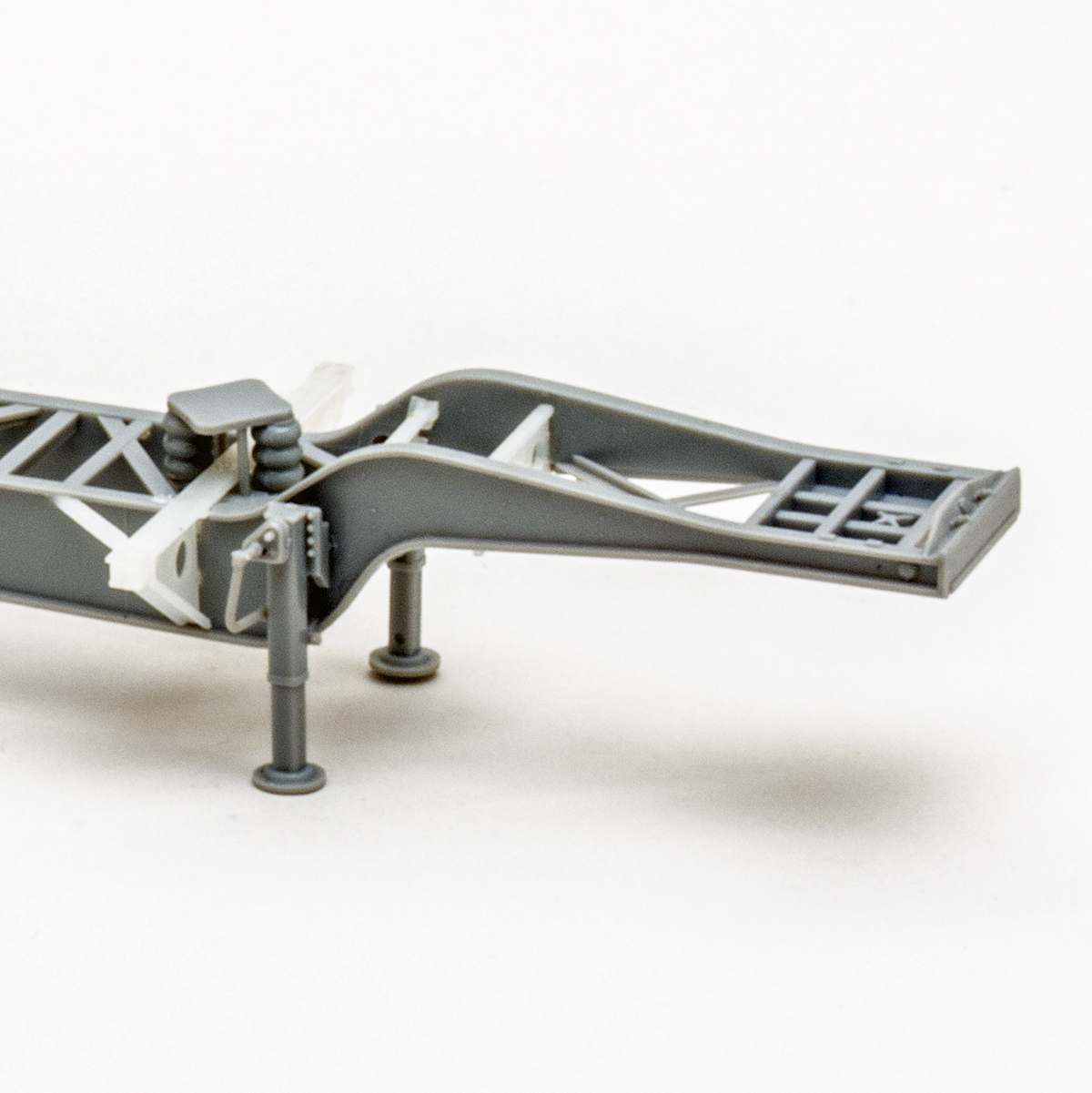
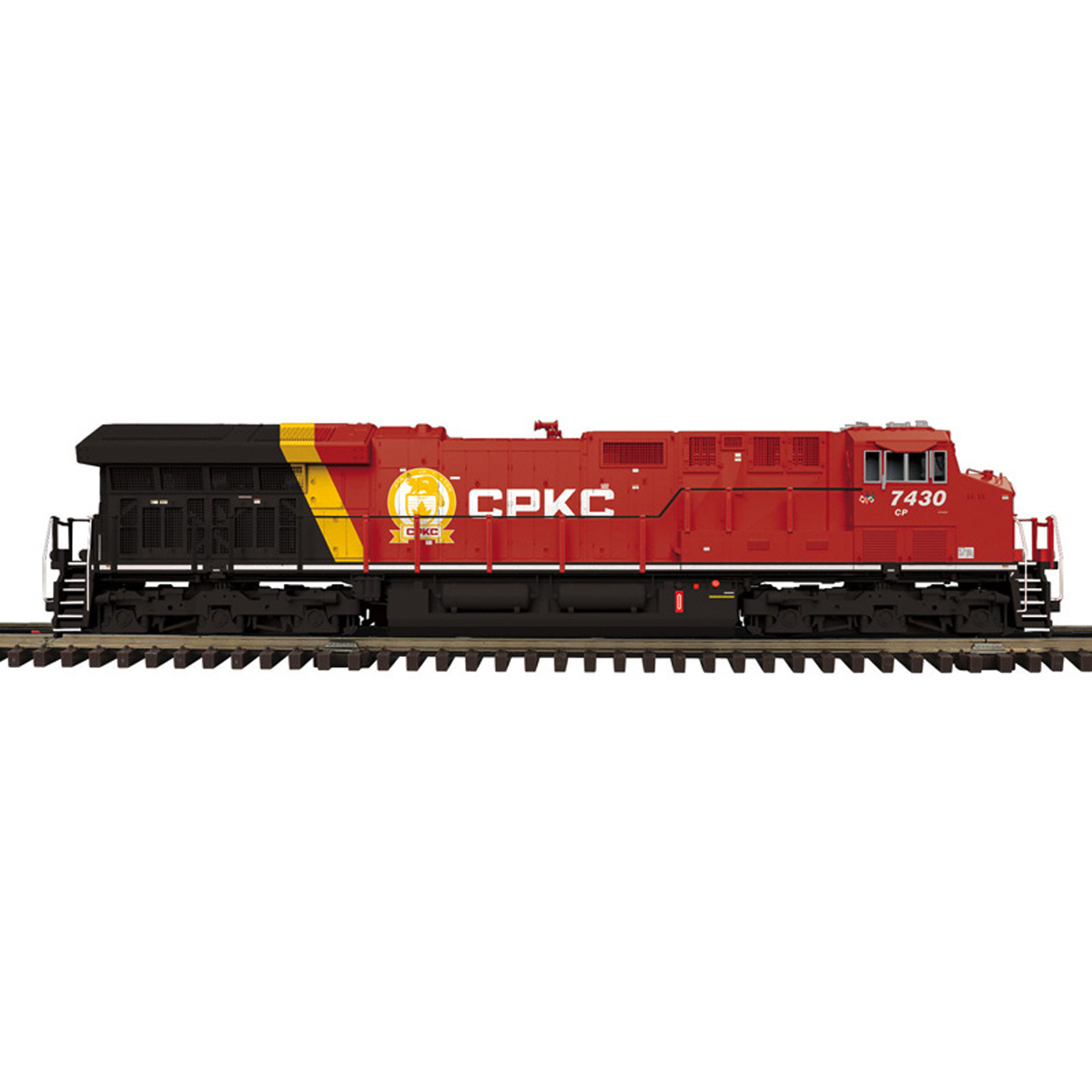
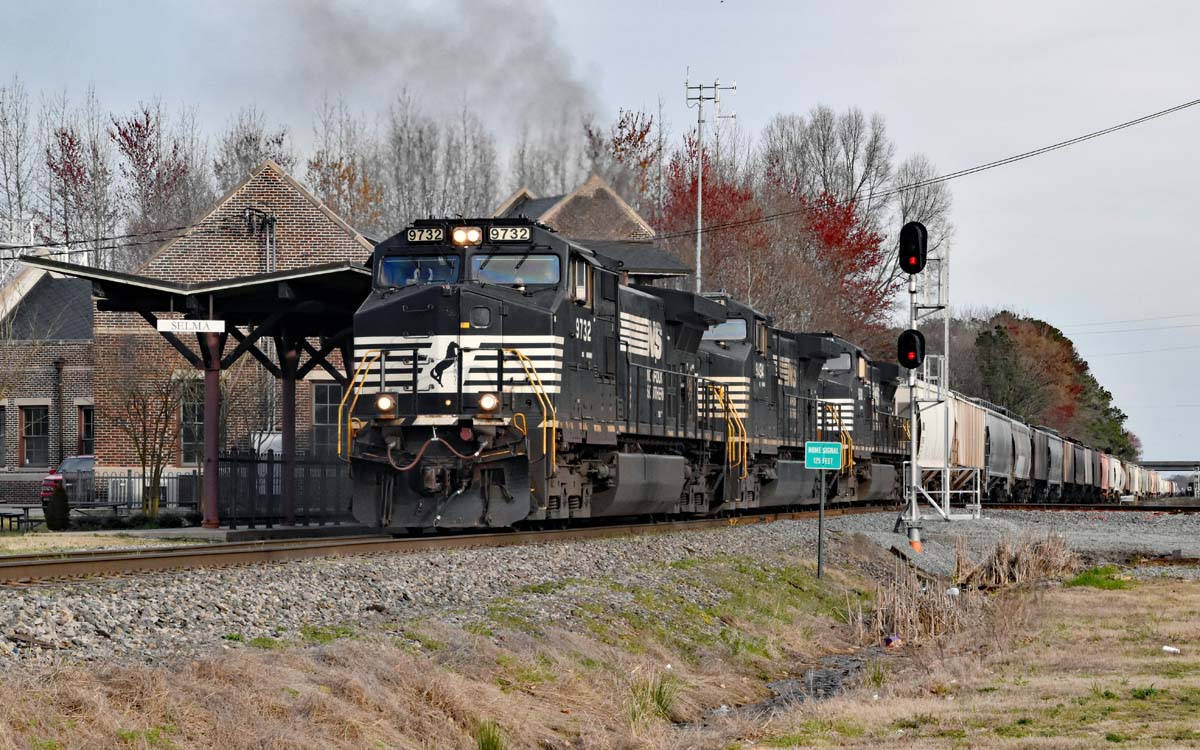
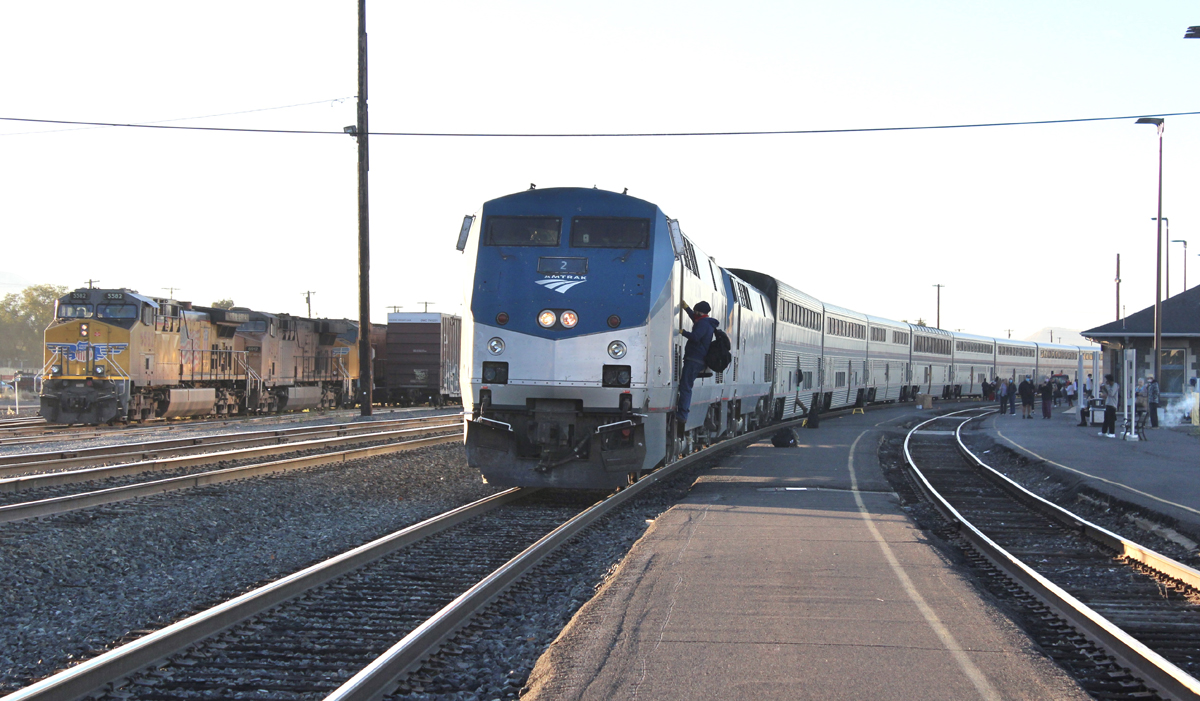




I’ll believe UP’s argument over Amtrak’s anytime.
Hell, the Blue Streak Merchandise freight trains beat the hell out of UP’s trains of today and Amtrak on the Sunset Route despite smaller passing tracks, etc .and other improvements to the route. UP’s desire to get the last mile out of crews is more at fault in my opinion along with territories to large for dispatchers to always be on top of trains. And, 2 mile long freights don’t help either..
You know doggone well that 2 Amtrak diesels are more than capable of keeping their short trains on schedule.
Amtrak: We want to eat our cake and have it too… even if we don’t know what that means…we just want it…
More padding, more dwell time, that’ll do it. I think I’ve seen this solution before.
Which is more laughable — AMTRAK paying performance bonuses when only 70% of the trains are on time, or UP whining that it is AMTRAK’s fault that UP can’t meet long-standing (even Southern Pacific) Sunset schedules on the route?